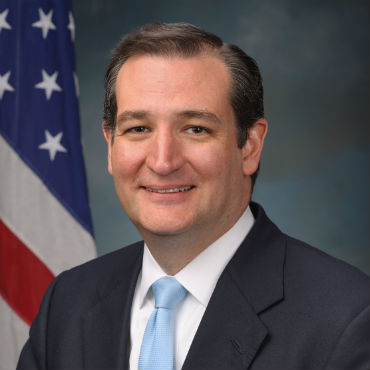Cruz seeks to block internet transition
Sen. Ted Cruz is leading an effort to stop a long-standing U.S. plan to cede control of an aspect of global internet architecture.

Sen. Ted Cruz said the government's plan to turn over control of a component of the internet's architecture "poses real risks to the liberties of Americans."
Sen. Ted Cruz (R-Texas) is spearheading an 11th-hour crusade to block the U.S.'s long-standing plan to transition control of internet architecture to a global, multi-stakeholder group before its deadline at the end of September.
The Internet Assigned Numbers Authority, which essentially serves as the address book of the internet, has been under U.S. control -- through a contract with the National Telecommunications and Information Administration -- since the dawn of the global internet, and ceding control to a nongovernmental group has been the plan all along.
However, the transition has become a political football since the Commerce Department announced an official strategy in 2014 to cede control of the IANA function to the private-sector group that grew out of the Internet Corporation for Assigned Names and Numbers (ICANN).
Cruz has raised the possibility of holding up a needed continuing resolution to fund the government past the end of fiscal 2016. At a contentious Sept. 14 hearing of the Senate Judiciary Committee's Oversight, Agency Action, Federal Rights and Federal Courts Subcommittee, he raised the possibility of adding a policy rider to the funding bill to require NTIA to extend the IANA contract for another year.
Cruz also warned that NTIA and Commerce employees who work on the transition are potentially in violation of the Antideficiency Act because of a fiscal 2016 appropriations rider governing work on the transition. He said those workers are "risking personal criminal liability of up to two years in prison."
The debate over the transition centers on internet freedom and the United States' international interests.
"This is a solution in search of a problem that poses real risks to the liberties of Americans," Cruz said. "Imagine an internet run like many Middle Eastern countries that punish what they deem to be blasphemy, or imagine an internet run like China or Russia, [which] punish and incarcerate those who engage in political dissent."
However, proponents of the transition argue that such fears are unrealistic and rooted in a fundamental misunderstanding of the IANA function, which "is too limited in scope to be a tool for protecting internet freedom," NTIA Assistant Secretary Lawrence Strickling said. "No one controls the internet.… To claim otherwise is simply not true, and people who really understand the internet know it is not true."
He said the U.S. is ceding a clerical function that has "nothing to do with the content of what's passing on the internet day by day," and blocking the transition out of fears of emboldening authoritarian countries could have the opposite effect and open an avenue where the voluntary system is replaced and excludes the U.S.
Other Republicans have questioned the constitutionality of the transition. However, on Sept. 12, the Government Accountability Office released a report that states "it is unlikely that either the Domain Name System or the authoritative root zone file...is U.S. government property," and the transition does not require an act of Congress.
Cruz also attacked ICANN, characterizing the organization as "run by global bureaucrats who are supposedly accountable to the technocrats."
However, Strickling pointed out that "governments can't sit as voting members on the board of directors."
He added that the real danger was the "dozens" of countries that could be influenced by the U.S. government's "backtracking" on its word. "Do not give a gift to Russia and other authoritarian nations by blocking the transition," he said.
ICANN President and CEO Göran Marby echoed that sentiment. "My biggest concern is not about the governments," he said. "This system is a voluntary system that nobody controls...that promotes working together to benefit all.... If the transition doesn't happen, there could be another ICANN outside the U.S."
Some have argued in favor of a soft extension to test the new ICANN structure. However, Steve DelBianco, executive director of NetChoice, told FCW that such a path was also problematic.
"The entire premise of a test period is completely mistaken...and would never provide the assurance that the transition would ever occur," he said. "That is not an atmosphere by which we lead by example and generate trust among other countries."





